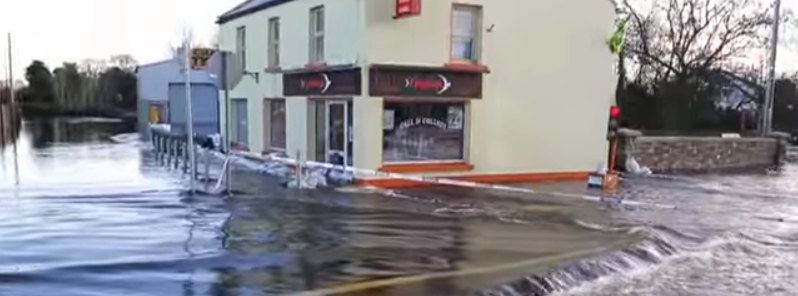Extreme weather events expected to increase during 21st century on the island of Ireland

New research conducted by a team of scientists from the University of Maynooth, Ireland, suggests the extreme weather conditions in Ireland will be on the rise throughout the 21st century. The study encompassed over 150 years of data and highly advanced modelling to map and forecast extreme seasonal conditions on the island and it revealed that extreme weather periods have been significantly more present since the mid-19th century.
The conducted research is an output of the 'Irish Climate Futures: Downscaling for Decision Making' project aiming at linking climate science to the needs of decision makers in charge of adapting to climate change. The study is the first of its kind on the island of Ireland to research the changing likelihood of seasonal extremes.
The scientists have identified the wettest, stormiest winters and the driest, hottest summers recorded over the last 150 years to determine how unusual these extremes appear in the long term context and have then developed a suite of climate model experiments to project and scrutinise patterns of extreme weather in this century.
The study results indicate that the likelihood of seasonal extremes has significantly increased since the records began. The summer of 1995 was the driest and warmest ever recorded. The chances of an equally warm summer have increased 56-fold since 1990. The wettest winter occurred in 1994/95, and the likelihood of such an event has doubled since 1850.

Video credit: Connacht Tribune Group
The observed trends will most likely increase, and projections show that as many as 26 out of the final 30 years of the 21st century are forecast to be warmer than the hottest summer recorded so far, which represents an almost 250-fold increase in likelihood since the beginning of the observations. Research results indicate one out of every eight winters will be as wet as the winter of 1994/95.
Such extreme summers imply significant consequences for the Irish society. Despite Ireland's mild climate, temperature rise does affect the mortality rates, as observed in 1995. Increasingly dry summers and wet winters have caused severe winter flooding and summer droughts in the past and will profoundly affect the water resource management and agriculture.


Video credit: Independent.ie
"The impetus behind this research was a desire to combat the ‘psychological distancing’ that is widespread amongst the general public and decision makers. There is an undeniable need for us all to reduce our emissions and plan appropriately for climate change. However, there is a common perception that climate change is temporally, geographically or socially distant from people’s lives, and this reduces public engagement with the issue," said Dr. Tom Matthews, the research author, previously of Maynooth University and now at Liverpool John Moores University.
"By contextualising climate change relative to extreme weather that people have observed in their own lifetimes, it is our hope that this research will provide a more tangible reference point for a wide range of audiences," said Dr. Conor Murphy, the leader of the research at Maynooth University's Department of Geography.
"The research carried out by Dr Conor Murphy and his colleagues is both academically significant and socially important. Climate change is the most pressing problem facing humanity as a whole, and Maynooth University academics and scientists have consistently distinguished themselves in their efforts to tackle it. Whether it is producing important research such as this or collaborating with industry to develop future energy technologies, Maynooth University researchers are at the frontlines of the battle against climate change," concluded Philip Nolan, the Maynooth University President.
Reference:
- "Past and future climate change in the context of memorable seasonal extremes" –T. Matthewsa, D. Mullanb, R.L. Wilbyc, C. Broderickd, C. Murphyd – Climate Risk Management (2016) – doi:10.1016/j.crm.2016.01.004
Featured image: Flooding in Craughwell, Co.Galway, December 2015. Image credit: Connacht Tribune Group

Commenting rules and guidelines
We value the thoughts and opinions of our readers and welcome healthy discussions on our website. In order to maintain a respectful and positive community, we ask that all commenters follow these rules.